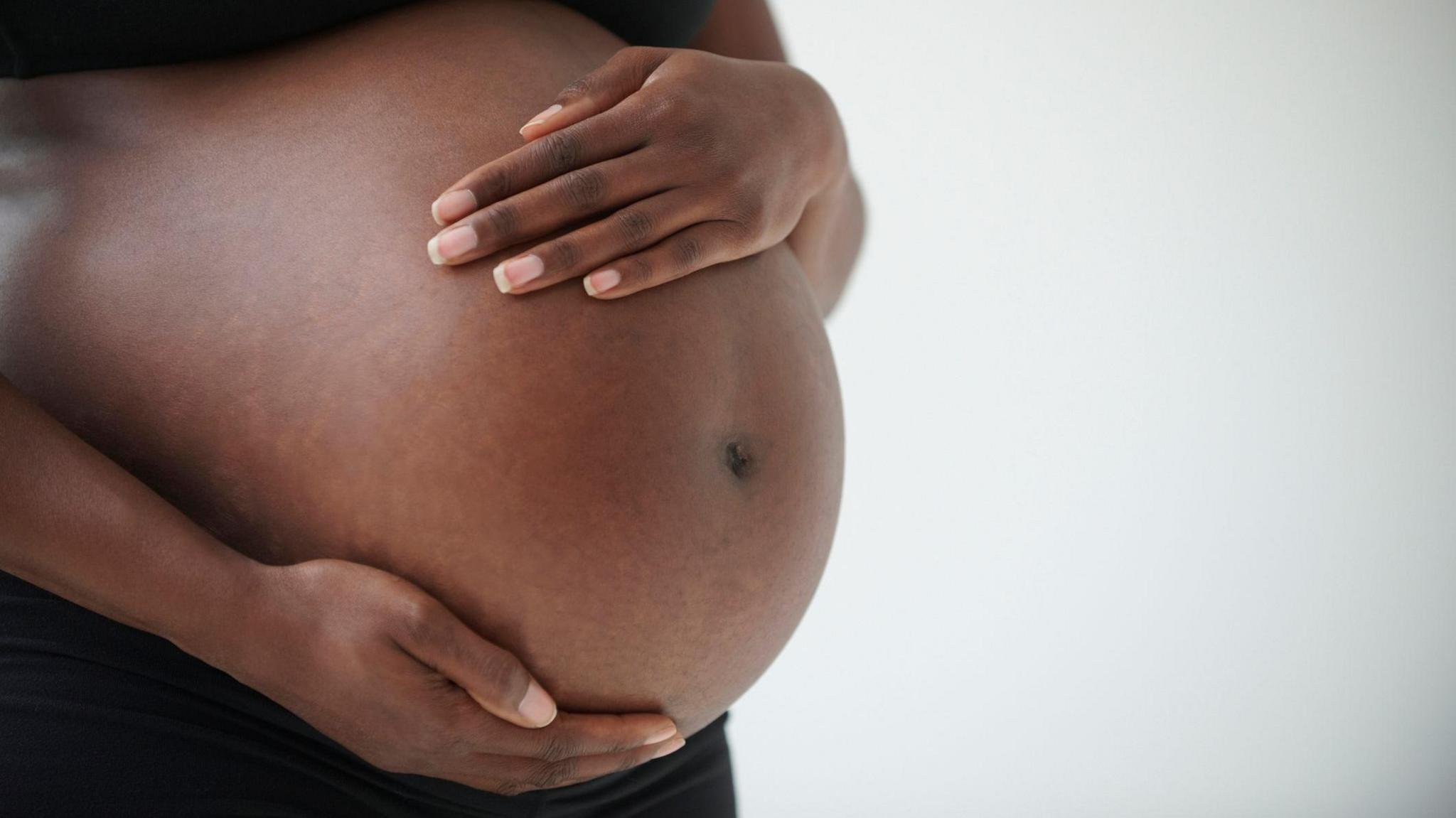Anaemia may boost heart disease in newborns - study

University of Oxford research analysed data from 16,500 mothers
- Published
Heart disease in children may be more likely if the mother has anaemia during pregnancy, according to a new study.
University of Oxford researchers analysed data from 16,500 mothers as part of a British Heart Foundation funded study.
It found that if a mother was anaemic in the first 100 days of pregnancy, the likelihood of having a child with congenital heart disease was 47% higher than usual.
It estimated that nearly a quarter of pregnant women in the UK – and more than a third globally – have anaemia, which is often caused by a lack of iron.
Anaemia is a common condition where the number of red blood cells or the amount of haemoglobin in red blood cells is less than normal, according to the NHS.
Severe anaemia in the later stages of pregnancy can lead to problems such as low birth weight and premature delivery, the study found.
But until now, little was known about the effect of anaemia in the early stages of pregnancy.
Prof Duncan Sparrow, who led the study, said: "We already know that the risk of congenital heart disease can be raised by a variety of factors, but these results develop our understanding of anaemia specifically and take it from lab studies to the clinic."
He added that knowing anaemia early in pregnancies was "so damaging" could be a "gamechanger worldwide".
"Because iron deficiency is the root cause of many cases of anaemia, widespread iron supplementation for women – both when trying for a baby and when pregnant – could help prevent congenital heart disease in many newborns before it has developed," he added.
Congenital heart disease is the most common kind of birth defect, diagnosed in an average of 13 babies a day in the UK, and is a major cause of death in infants.
Researchers previously found a link between anaemia specifically caused by iron deficiency during pregnancy and congenital heart disease in mice, and now want to confirm the link in humans.
It is hoped that this would lead to trialling iron supplements as a potential way of reducing cases of congenital heart disease in the future.
Get in touch
Do you have a story BBC Oxfordshire should cover?
You can follow BBC Oxfordshire on Facebook, external, X (Twitter), external, or Instagram, external.
- Published15 April
